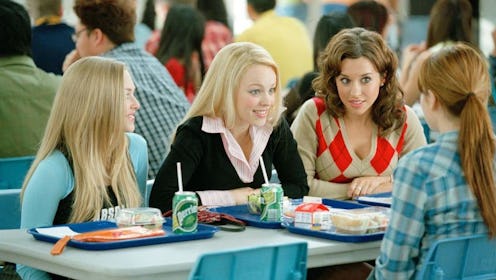Life
How Your High School Experience Affects You Even Now

The social hierarchy of high school sticks with our psyches long past graduation. Aside from likely being able to remember the names of your class’ “cool kids” better than most subjects you learned in high school, research shows high school popularity affects us into adulthood. Basically, because our brains are quite literally being molded during puberty, things like who we remember as popular in high school can shape how we process experiences even as as adults.
Author Mitch Prinstein explains how this works in his most recent book, POPULAR: The Power of Likability in a Status-Obsessed World. Prinstein states that because our brains are developing so dramatically during these formative years, “experiences we have in those critical years have the potential to affect the brain we will live with for the rest of our lives.” This explains why most of us have pretty strong feelings about high school popularity even years later.
One of the biggest ways high school popularity shapes our societal perspectives is through “social information processing.” This is the quick but complex way we judge social situations and decide how to react accordingly. Prinstein uses the example of instinctively saying “sorry” when someone else bumps into you. “The millisecond decisions we make in such reactions reveal some form of bias that can be traced back to our past,” Prinstein states. Because our adult brain is beginning to form in the halls of high school, many of our social survival skills were formed in those spaces as well.
Some research suggests the social pull to be popular stems from prehistoric days. Because people would live out most of their lives among the same, small group of people, social standing was important for evolutionary purposes. Being desirable and admired was a survival skill in both the literal and the social sense.
The effects of popularity could be shaping our brains in other ways as well. One 2015 study found that popular people’s brains tend to have one characteristic in common: being more attuned to other people’s popularity. The study suggests that people who are popular become so because they care about popularity at a neural level. This research also suggests another contributing factor to a person’s popularity is, well, the perception that they’re popular. We tend to be drawn to people who we perceive as “popular”—even if we don’t actually like those people—which in turn makes those people even more popular. This could potentially explain why we hate-watch reality shows about famous people or paid attention to what the cool kids in our high school were doing, even if we didn't run in those circles.
Perhaps this all sounds counter-intuitive to your previous notions of popularity. Being popular isn’t supposed to matter in the long run, right? As Prinstein writes in The Guardian, “The more we understand about popularity and how it affects us throughout our lives, the more likely we are to break the cycle of interpersonal experiences that began back in school.”
So, no need to revert to your high school days of trying to be like the cool kids (cue sigh of relief) or just trying to avoid them altogether. Prinstein's work is simply a psychological explanation behind why we still might fight feel those pangs of popularity, even subconsciously, long after we’ve forgotten our locker combinations.